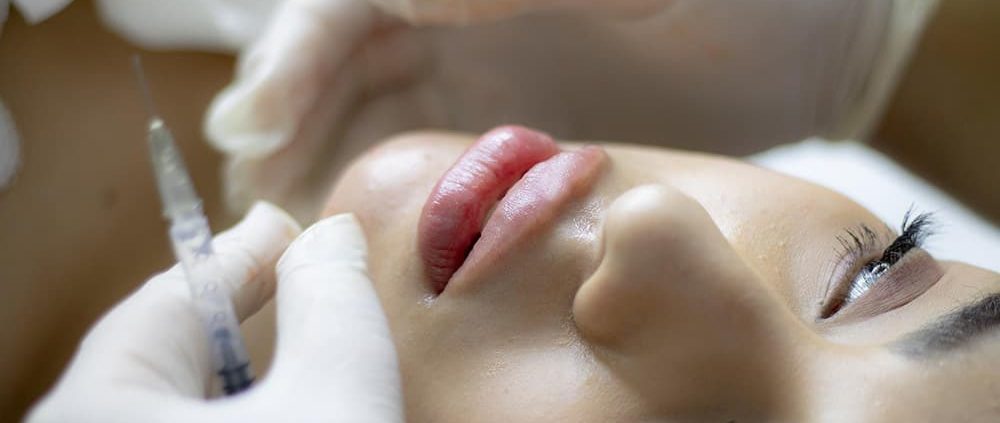What to Do After Lip Fillers: 16 Aftercare Tips
Lip fillers, also known as dermal fillers, are simply injections that aim to increase the volume and fullness of your lips.
After receiving lip fillers, you may experience some minor side effects such as swelling, bruising or tenderness around the injection site.
In this article, we walk you through some of the best tips for lip filler aftercare, including some dos and don’ts, so you know exactly what to do after you receive your treatment.
1. Speak with Your Consultant About Pain Medications
Pain can be a natural part of the procedure and it’s completely understandable if you’d like to use medication to treat it in the following days. Just make sure that you speak with a doctor before doing so as certain types, like ibuprofen or aspirin, can thin your blood, and could potentially complicate your lip fillers.
2. Treat Bruising with Aloe Vera, Vitamin K, or Arnica Creams
A study performed in 2015 that looked at dermal fillers states that “bruises are said to be reduced by using arnica, aloe vera, or vitamin K creams.” Just make sure you apply these creams to bruises around the injection site.
3. Avoid Getting Other Cosmetic Procedures for 2 Weeks
Avoid getting other types of cosmetic treatment on or around your face, such as facials, chemical peels, waxing, microdermabrasion, skin needling, IPL or laser treatment. Make sure to tell your consultant of any upcoming procedures you have planned before getting your lip fillers.
4. Stay Away from High Temperatures
Make sure to stay away from high-temperature environments such as saunas, steam rooms, or heated exercise sessions for up to 2 days. The reason behind this is that heat can cause added swelling.
5. Avoid Exercise for Up to 48 Hours
Vigorous exercise can cause your heart rate and your blood pressure to rise, which can result in added swelling or bruising to your lips following the treatment. So, it is recommended that you avoid any type of strenuous activity. This also applies to any other type of dermal filler treatment.
6. Elevate Your Head as You Sleep
Use extra pillows to elevate your head as you sleep to help reduce swelling. This means sleeping on your back as lying on your front with your face down is not at all recommended.
7. Stay Hydrated
While always advisable, we recommend you drink plenty of water to help your recovery.
8. Avoid Extra Salty Foods
Avoid high-sodium foods as salt is known to trigger swelling. Instead go for hydrating fruits and vegetables such as lettuce, cucumbers, watermelon, and strawberries.
9. Apply Ice
To help ease swelling and irritation, we recommend applying ice to your lips following your procedure. An ice pack or an ice cube covered in a thin flannel will certainly do the trick.
10. Avoid Using Make-Up on Or Near Your Lips
Avoid using make-up products such as lipstick or lip pencils on your lips for up to 24 hours after you’ve received the injections.
11. Allow Time to Recover
Give yourself some time to recover from your treatment. If you’re getting them done in preparation for an event, make sure to have a big enough gap for everything to be in perfect condition.
12. Don’t Fly!
It is usually recommended that you avoid flying for at least a week after your treatment. This is actually because the air pressure in the plane can make swelling or bruising worse.
13. Avoid Pressure on Your Lips
Try not to put any type of pressure on your lips for up to 24 hours. This includes sleeping on your face, massaging your lips directly and – unfortunately – no kissing.
14. No Alcohol for at Least 24 Hours
Steer clear of alcohol for at least 24 hours before and after your procedure. Alcohol is known to expand your blood vessels, and can increase your chances of swelling and bruising.
15. And No Smoking for 2 Days
We often hear this question: “Can I smoke after receiving lip fillers?” Unfortunately, you will need to steer clear of smoking for at least 24 – 48 hours following your treatment. This is down to the fact that smoking can apply extra pressure to your lips and increase your risk of infection.
16. When in Doubt, Speak to a Professional
Following your treatment, your consultant or relevant healthcare professional will advise you on the best possible form of aftercare for lip fillers. If you have any concerns about your lips post-treatment, make sure you contact these healthcare professionals as soon as possible.
If you’d like to find out more about receiving our lip filler treatment, then get in touch with our medical director Dr Joshua Berkowitz or one of his team. Call us today on 0207 224 2247 or email us at info@wimpoleaesthetics.co.uk to arrange your free consultation.


